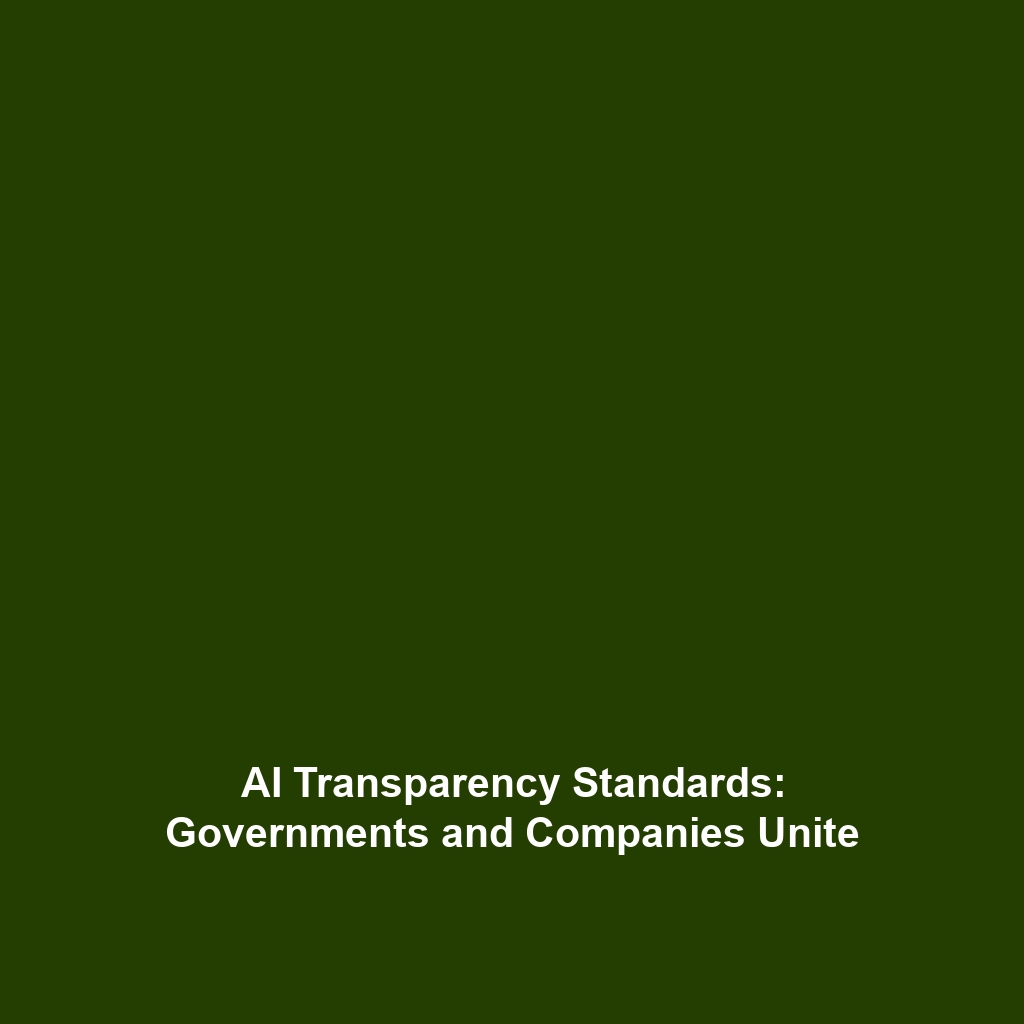AI for Good: How Ethical AI Can Benefit Society
Introduction
In the rapidly evolving world of technology, AI for Good represents a transformative approach to artificial intelligence that prioritizes ethical considerations and societal benefits. Recognizing the importance of AI ethics, various organizations and researchers seek to harness AI capabilities to solve global challenges, from healthcare disparities to climate change. This article delves into the significance of ethical AI and its potential to create positive social impact, demonstrating how responsibly developed AI can enhance our societies rather than harm them.
Key Concepts
Defining Ethical AI
Ethical AI refers to the design, development, and deployment of artificial intelligence systems in a manner that aligns with societal values and human rights. Core principles include:
- Transparency: Ensuring AI systems are understandable and their decision-making processes are clear.
- Fairness: Designing algorithms to avoid bias and promote equitable outcomes.
- Accountability: Holding organizations responsible for the impact of their AI technologies.
- Privacy: Safeguarding personal information while utilizing AI solutions.
AI for Good Framework
The AI for Good framework encompasses projects and initiatives that aim to leverage AI for societal betterment. Examples include applications in healthcare diagnostics, disaster response, and sustainable resource management. The integration of AI ethics is critical as it guides these initiatives to remain focused on the well-being of all.
Applications and Real-World Uses
Understanding how AI for Good is used in AI ethics involves exploring various real-world applications. Some notable examples include:
- Healthcare: AI algorithms help in early disease detection and personalized medicine, ensuring equitable access to health resources.
- Environmental Protection: AI aids in tracking pollution levels, predicting climate changes, and optimizing energy usage for sustainability.
- Disaster Relief: AI technologies streamline logistics for emergency responders, enhancing the effectiveness of assistance during natural disasters.
Current Challenges
Despite the promise of AI for Good, several challenges of AI for Good can hamper its implementation within the framework of AI ethics:
- Ensuring a uniform understanding of ethical standards across diverse cultures and industries.
- Navigating the technological and regulatory complexities that accompany AI deployment.
- Addressing unintended biases within AI systems that may arise from training data.
- Maintaining public trust while balancing innovation and privacy concerns.
Future Research and Innovations
Future research related to AI for Good is expected to focus on:
- The development of explainable AI systems that enhance transparency for users.
- Innovations in privacy-preserving techniques, allowing data to be used ethically without compromising individual rights.
- Advancements in multi-stakeholder approaches to foster collaboration between technologists, ethicists, and the public.
These innovations are likely to shape the future landscape of AI ethics, ensuring that ethical principles remain central as AI technologies advance.
Conclusion
In summary, AI for Good serves as a catalyst for integrating ethical considerations into artificial intelligence development, highlighting its potential benefits for society. As ethical AI initiatives proliferate, it is imperative that stakeholders commit to principles of transparency, fairness, and accountability. Embracing AI ethically not only facilitates technological advancement but also fosters a responsible approach that prioritizes human welfare. For further reading, explore our articles on ethical technology and sustainable AI solutions.
